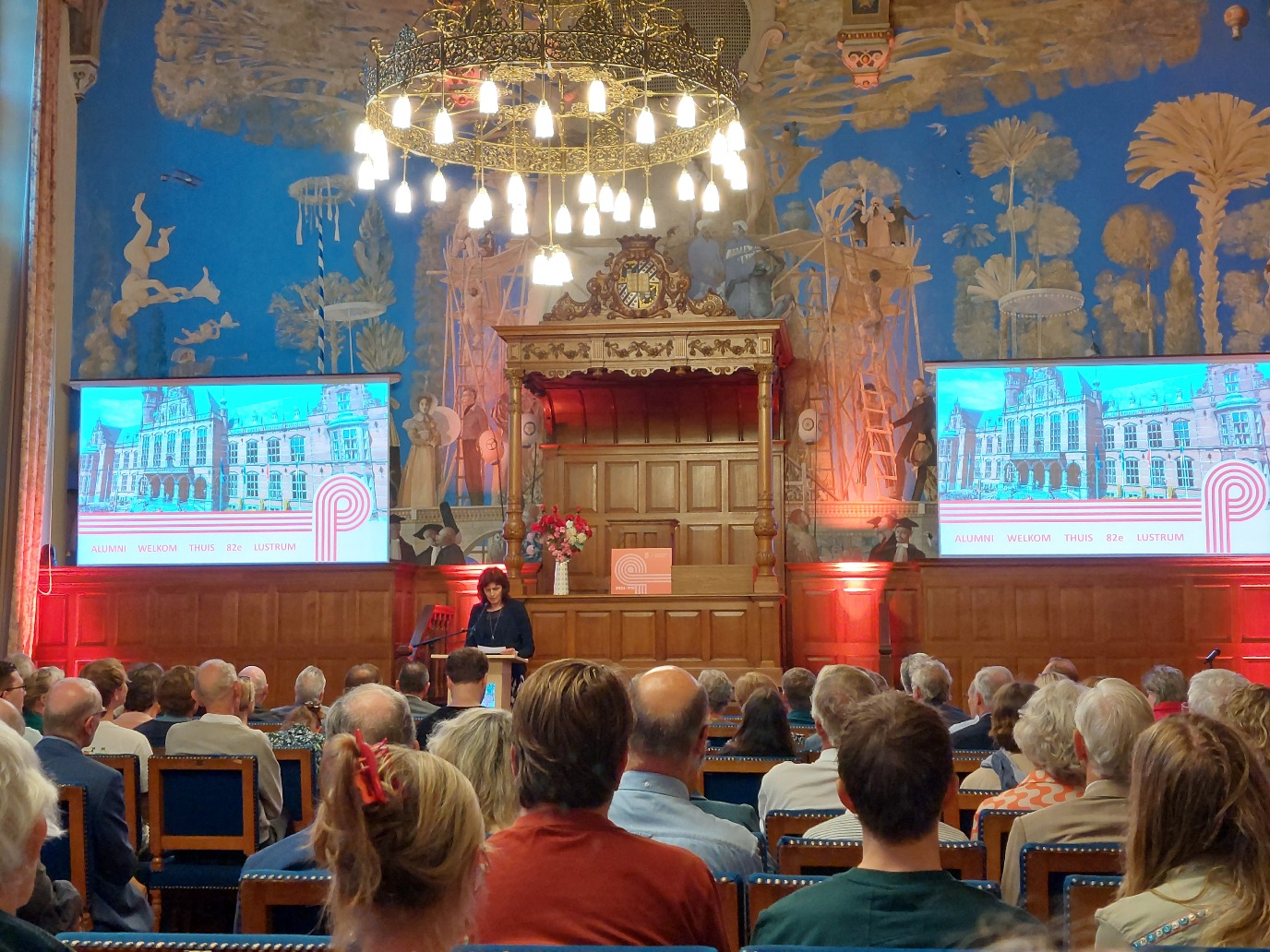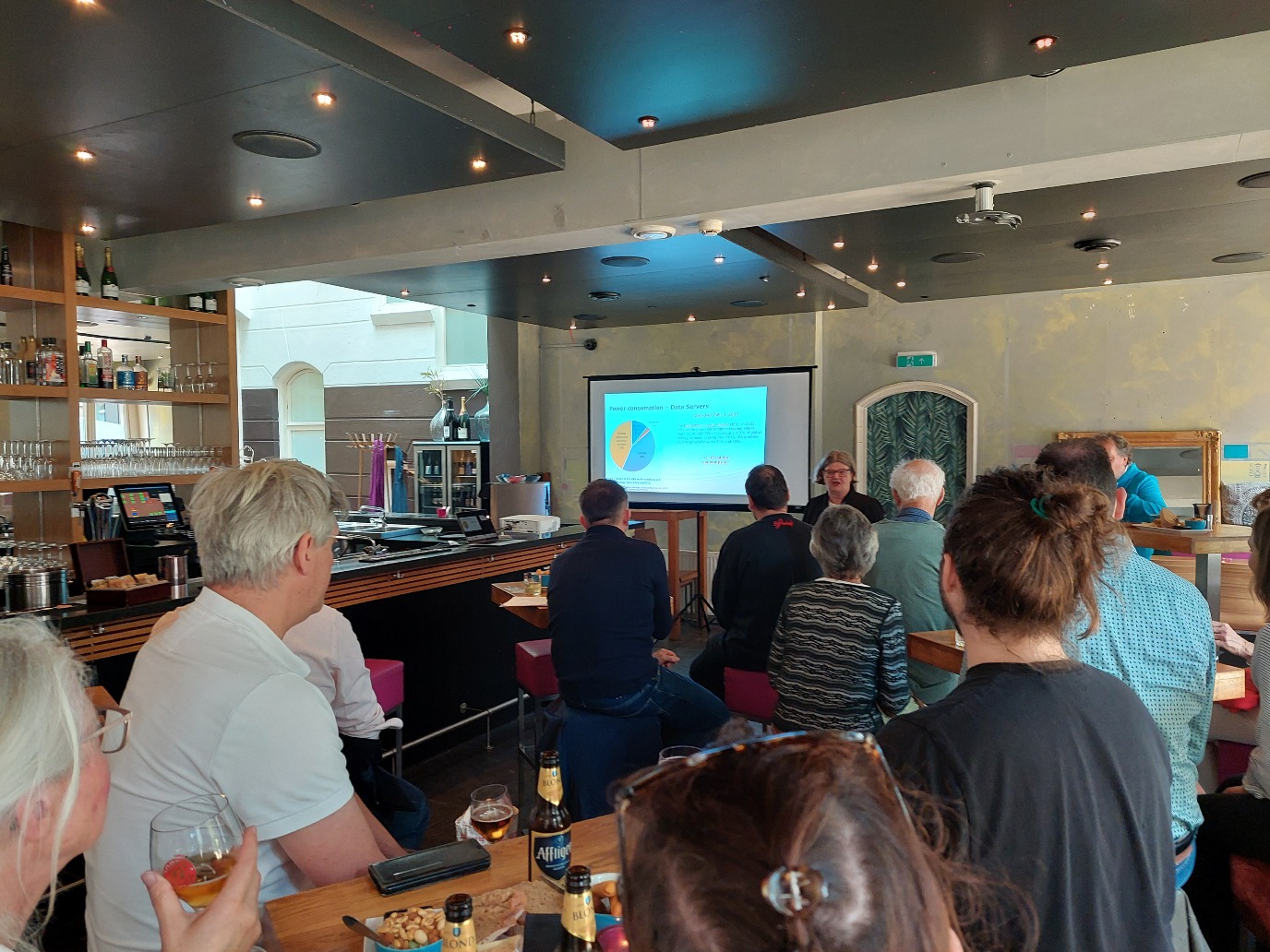Events
The University of Groningen organises all kinds of activities for alumni.
Are you looking for a postgraduate course, do you want to keep access to the University Library or do you want to keep in touch with other alumni in your area? Then you have come to the right place.

Faculty events for Alumni
Stay connected with us. We hope to see you at one of our alumni events.
The upcoming events for alumni will be shared on this page.
Looking back at the last alumni event
On May 25 2024, we celebrated the historic Lustrum of the University of Groningen, marking 410 years of academic excellence.
The Alumni Day was a memorable occasion filled with engaging discussions. Our Alumni had the chance to reconnect with fellow graduates.
FSE was represented in the Meeting your favorite lecturer event by Prof. Francesco Picchioni and Prof. Petra Rudolf. They both gave a mini lecture in their respective research fields. The Alumni present in the room could ask questions and enjoy some drinks and snacks while networking with other graduates.
| Last modified: | 08 July 2024 3.14 p.m. |


